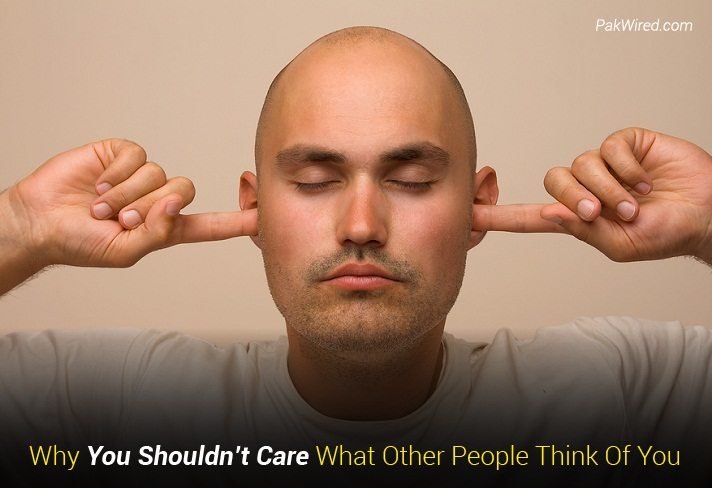We are social animals. Without community we cannot survive, let alone thrive. The opinions of other people in our community are important; without some kind of consensus, no community could function. And yet, as with anything, a healthy level of respect for other people’s views can tip over into a kind of pathological need for approval, an unhealthy addiction to praise and acceptance.
We would probably be a lot happier if we all cared rather less about what other think of us. It may be worth bearing a few points in mind next time someone says or does something disapproving.
People see things from their own perspective
Everyone interprets the world according to his own values, experiences and expectations. Since each person is operating from a different set of values and has a different way of seeing things, it is obviously impossible to conform to everyone’s standards, especially since these standards are often contradictory.
The answer, of course, is to ‘dance to your own tune.’ Be clear about your own values and use them to judge your actions. It can be helpful to write a personal ‘mission statement,’ a simple declaration (to yourself – it need not be shared) of what you stand for, what you believe and what guides your life. So long as your actions measure up to your own credo, then other people’s opinions will seem less relevant. Your ‘statement’ will act as an anchor or a yardstick against which to judge your own actions. But remember – other people are entitled to their own values, too – don’t be too judgmental about others.
Situations are never neutral
We all overlay every situation with our own perspective, grafting on an interpretation to suit our own preferences and beliefs. We do not see the world as it is – we see it as we are. When someone criticizes you, don’t see it as an objective or neutral comment. It is not. It is loaded with someone’s own agenda and usually tells you more about the other person that it does about yourself.
It is true, however, that it is extremely hard to be objective about ourselves, and that other people can shed light on our own shortcomings. But one has to be careful to pull out the useful, objective parts of any criticism. The point is simply this – don’t take criticism at face value. Analyze it, test it against your own value system, and consider the agenda of the person doing the criticizing. As a rule, people who criticize and complain a lot, or who do so in a vague way, can usually be ignored; the opinions of those who generally keep things to themselves carry more weight.
We often look to the approval of others in order to feel good
just as we might look to any number of external things to supply happiness and security. But real happiness never comes from the outside. It is within, and we would do better to tap into our own inner reserves of peace than to search outside for an illusory and fleeting sense of contentment. Nothing outside can make you feel good because nothing outside is stable, and to cling to the unstable for happiness is to invite suffering.
Of course, it is important to think about other people’s opinions and to take them into account. Communities should listen to each other and respect each other’s views, and sometimes we are wrong and we need to listen to another perspective. But you must make your own choices, based on your own set of values, and stand by them. To listen too much to others is to abdicate responsibility for your actions. In the end, you and you alone are responsible for what you do. We should certainly be aware of and listen to the opinions of others, but their approval – or otherwise – should be of little importance.


